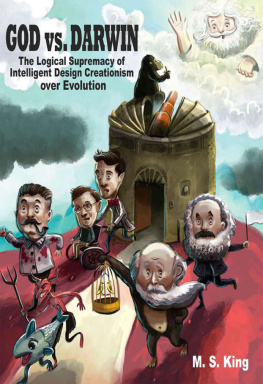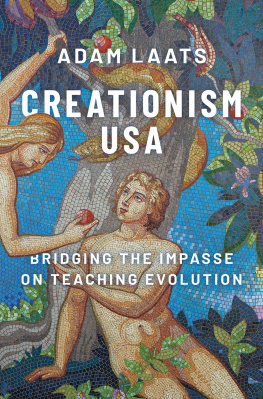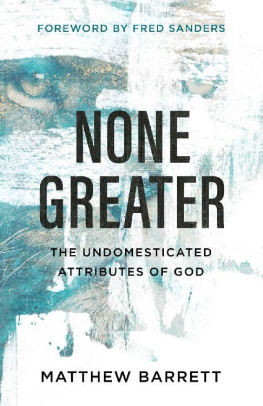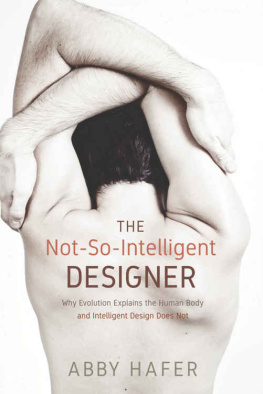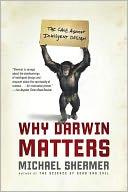




FLOCK OF DODOS

Behind Modern Creationism,
Intelligent Design &
the Easter Bunny
Barrett Brown
Jon P. Alston, Ph.D.


To Karen Lancaster
DODO CONTENTS

CHAPTER ONE
CHAPTER Two
CHAPTER THREE
CHAPTER FOUR
CHAPTER FIVE
CHAPTER SIX

ONE
In Yahweh We Trust
We are dealing here with something more than a straightforward determination of scientific facts or confirmation of scientific theories. Rather we are dealing with competing worldviews and incompatible metaphysical systems.- William Dembski, Intelligent DesignLet me make the superstitions of a nation and I care not who makes its laws nor its songs.- Mark Twain
The largest problems are often the easiest to ignore. Just as often, they're also the hardest to fix. This is why the largest problems tend to remain large and problematic forever.
Consider the federal deficit. It's easy to ignore because it's boring, and it's hard to fix because, deep down, no one really gives a damn about it. Of course, members of whichever political party is sidelined at the moment will occasionally express varying degrees of existential angst over the whole thing, and every once in a while a cranky senior citizen will write a strongly-worded letter to his local newspaper in which runaway spending is denounced in no uncertain terms. But the politicians are just doing their jobs, or at least going through the motions of such, and the cranky writer simply has too much time on his hands; next week he'll be denouncing the laxity of leash law enforcement with equal vigor.
Next time you're at a bar, try to start a fight over a national budget shortfall. You'd be hard-pressed to get a rise out of a coked-up Hell's Angel at three in the morning. Mad Dog just doesn't care. Most likely, you don't either. Neither do I, to be perfectly honest. And the nation's political strategists are fully aware that neither you nor I nor Mad Dog himself is likely to give much thought to the deficit when we all go to the polls, and that the only fellows who might actually do so are a couple of editors over at The Economist and perhaps Ross Perot. But the editors of The Economist can't vote because they're Brits, and Ross Perot is just going to vote for himself anyway.
The political strategists are aware of this as well. So the deficit is here to stay, and for every cover story that Newsweek runs on the subject, it will also run at least eight others covering all-natural arthritis treatments. This may be considered to be a law of nature.
But not every large problem facing the nation need be regarded so fatalistically. Some of these large problems are neither easy to ignore nor hard to fix - which means that they not only can be solved, but even might be solved.
One of those rare, lucky problems is the latest assault on the theory of evolution. It's hard to ignore because it's sexy and far-reaching in its implications, the sort of thing that might compel someone to write a tired cliche on a piece of cardboard and demonstrate in front of a county courthouse. And it's easy to fix because the ones leading the assault are the sort of people who actually do that sort of thing.
Unlike the deficit, the war over evolution is an emotional issue. But like the deficit, it's also an important issue that deserves an honest, straightforward explanation.
If one were to write a book with the intent of explaining the root causes of the current federal deficit, an honest writer would naturally feel compelled to report these causes without regard to any toes he might be stepping on in the process. And despite the subject's relative lack of emotional immediacy, toes would indeed have to be stepped on - congressmen, lobbyists, and pressure groups of every stripe and flavor would have to be cited for their faults, hallowed institutions like the farm subsidy racket would have to be taken apart and examined in a rather unceremonious fashion, and a good portion of the voting public itself would have to be scolded, subjected to severe finger-wagging, and otherwise called to account for allowing such silly things to happen in the first place. This would certainly make some people cranky. In the end, though, the book will have accomplished its purpose of providing the skinny on the deficit.
Similarly, the intent of this book is to explain the current battle over evolution. Like our hypothetical screed concerning the deficit, this book obligates us to step on some toes. But because of evolution's wider implications, we are required to do more than that. By the very act of pointing out certain facts, we not only step on toes, we also cut them off. Now, this is a very painful process to be sure, and one can't help but feel a bit of sympathy for those whose toes will soon go missing. But the process is unavoidable, lest we all lose our heads in the end.
This will not be a polite book. Politeness is wasted on the dishonest, who will always take advantage of any well-intended concession, and the leaders of the so-called "Intelligent Design" movement, as we shall see, are so incredibly dishonest that they could cause a veteran heroin addict to blush - not out of any moral objection on the part of the addict, but rather out of embarrassment that anyone could be so darned bad at lying. And, as we shall see, the Intelligent Design folks are bad liars indeed.
"But why do the Intelligent Design folks lie?" you ask. Avery perceptive question, Gentle Reader. Also, you're looking quite dapper today. Have you lost weight? Not that you needed to in the first place. You carry it well.
The answer is that they lie for the same reason that I just did, or that the heroin addict does - they lie because they want something, but they don't want you to know the true nature of what they want. Just now, I lied to make a point on the sly - I have no way of knowing if you really are perceptive, or if you look any more dapper today than you did yesterday, or if anyone still says "dapper" anymore, or whether or not you lost weight or needed to in the first place. For all I know, you could be some sort of half-literate water buffalo. If so, you have my condolences.
Unfortunately, lies intended to prove points are a rare sort indeed. More common are the types of lies told by heroin addicts.
Scenario One: The Heroin Addict Meets a Good-Natured Sucker
"Excuse me, but I've just run out of gas down the street. Can you give me, like, five bucks? I'm trying to get some gas. You can tell, because I'm carrying this cheap plastic gas can."
Next page



